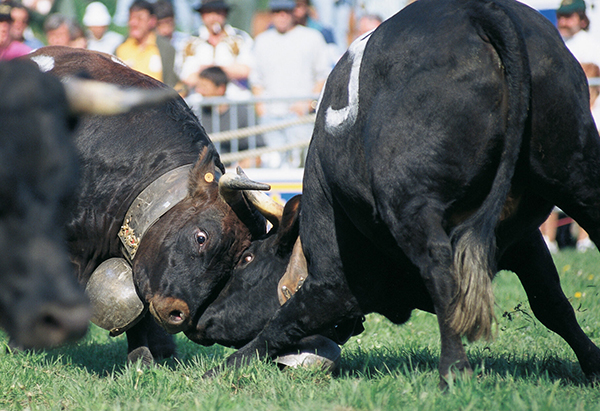Mmm...MMM...MMM..MMealworms @ Coop!; Baby Monkeys At Basel Zoo; Global Business Incubator Launches in Basel; Basel Urges Waste Sorting Care
News For 15 August 2017
Having secured a change to Swiss food safety law, Coop will begin selling mealworm based burgers and "meatballs" on August 21st in all major cities including Basel. The changed law provides for strict rules on the breeding of the insect larvae before they can be marketed as food. Apparently, the bugs have been used in animal feed for some time throughout the world. Also on the approved list for the adventurous gourmet will be grasshoppers and crickets!
***********
The Zoo of Basel welcomed five baby South American monkeys (known as “Skull Monkeys” in German) between mid-June and mid-July. The zoo is still unsure of the gender of the monkeys, as this can be hard to determine in their first few months of life. The baby monkeys will stay with their mothers for around six months before they start becoming independent. The monkeys, also called Saimiris, live in female groups made up of mothers and daughters. The males live separately in so-called “bachelor groups” and are weaker than the females. The Basel zoo currently houses two separate female groups, counting a total of 28 monkeys, and just one male.
***********
Basel joins other global cities in hosting an Impact Hub space which in 2015 alone helped 2100 new enterprises start. Started in London in 2004, Impact Hub's formula for success has been to offer co-working spaces to companies that focus on a more equitable and sustainable economic principles. Hanna Byland, one of the founders of the local branch said "We want to offer companies a platform to develop, grow and become profitable". Looking forward, the founders hope to enhance Basel's thriving entrepreneurial scene by offering workshops and community events to those hoping to start a company, or grow an existing enterprise.
***********
In Baselland around 60’000 tons of organic waste are disposed of in the three central composting facilities. Aside from biogas, mainly methane, the main product is compost, which is then used in agriculture. As opposed to the waste incineration system, the composting and fermentation process allows plant nutrients to return to natural ecological cycles. However, in recent years, bigger amounts of plastics have been found in the waste collection plants. Therefore, the canton is urging those who do compost to be mindful of what they put in the containers, and those who deal with the waste should be more consistent about sorting through and removing unsuitable, non-biodegradable materials.



 Every spring in Valais, the local Eringer cows battle it out to be declared «Queen of Queens». It's not like bullfighting, where a human fights a bull to the death. The «Combat de Reines» features cows with blunted horns vying for dominance of the herd. The annual events draw up to 50,000 spectators.
Every spring in Valais, the local Eringer cows battle it out to be declared «Queen of Queens». It's not like bullfighting, where a human fights a bull to the death. The «Combat de Reines» features cows with blunted horns vying for dominance of the herd. The annual events draw up to 50,000 spectators.